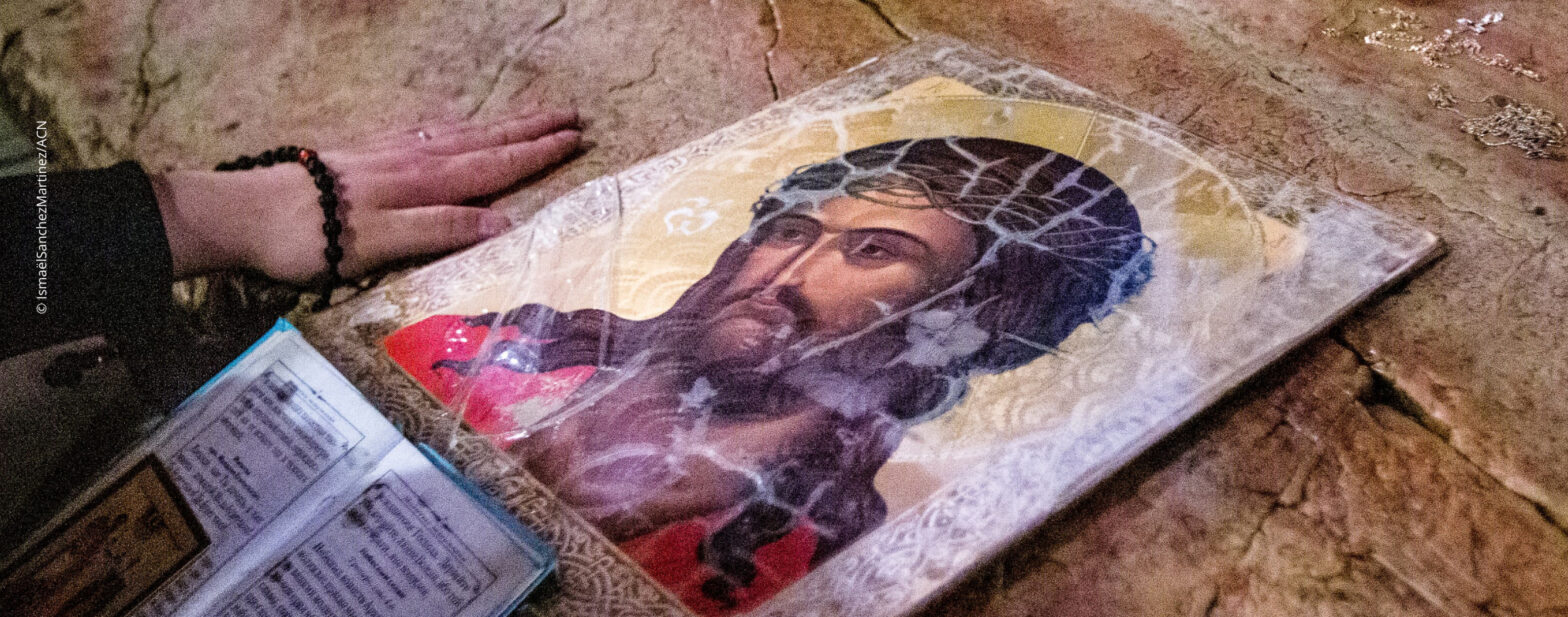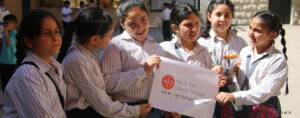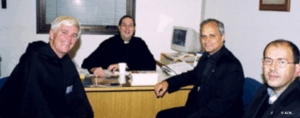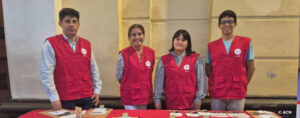Jerusalem, a city of peace in a state of war
In East Jerusalem, which is home to around 10,000 Christians, the situation is also very difficult. Around 40% of them are also dependent on the tourism sector, and many have lost their jobs. The tourists have left, and the hotels that are not empty are being used as quarters for the reservists or to accommodate Israelis who fled the southern parts of Israel close to the Gaza borders. Many of the Christians who worked in them have become unemployed.
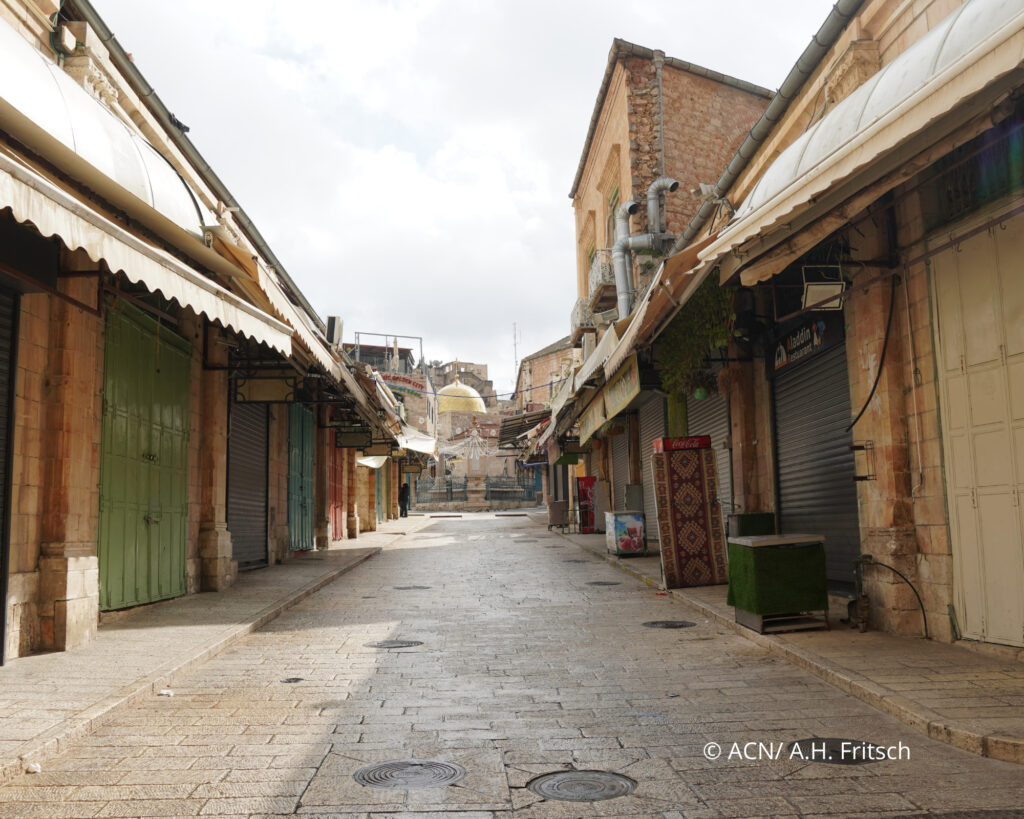
“But faith remains strong in their hearts, and there are many signs of solidarity. Some of those who have maintained their jobs are donating 15% of their income to poorer families. The crisis is bringing the Catholic community closer together, but the health situation continues to be alarming,” stresses Akroush.
Father Artemio Vitores, a Spanish Franciscan who cares for the Cenacle church, tells ACN that he doesn’t want to be “too pessimistic, but very little about this situation is peaceful. Jerusalem should be a sign of peace and harmony for everybody. It is a Holy City for Jews, Christians, and Muslims. This is so difficult! Peace is a gift from God, but it requires people’s cooperation.”
“The situation is very difficult, and we trust in God that it will not get worse. We have to ask the Lord, and Mary, the Queen of Peace, to prevent violence and intolerance from reigning, instead of harmony and love, and that the pilgrims be allowed to return to the Holy Land in peace and joy. Do not forget us in your prayers!”
Evil cannot have the last word.
Finally, there is also a Christian community spread out over other parts of Israel—a very diverse community including visitors, students, volunteers, and also around 110,000 foreign workers.
All of them, foreigners from other countries or people with dual citizenship, have been experiencing the fear of the terrorist attacks up close, as well as the pain and anguish of family, friends, or colleagues.
Holly is one of them. She is an American who was in Jerusalem when the world as she knew it collapsed. “These past few days have been terribly long and tiring. My heart aches because of the inhumane and unthinkable atrocities carried out by Hamas. The day of the initial attack saw the highest number of Jews murdered in a single day since the Holocaust. It is really unimaginable.”
Her family and friends immediately helped to find a flight home. “Even though I was still very concerned, I packed my bags. But on Sunday, I received a message that changed all those plans in under a minute,” she explains. A humanitarian organization had asked her to help look after displaced Jewish families from Sderot, on the border with Gaza.
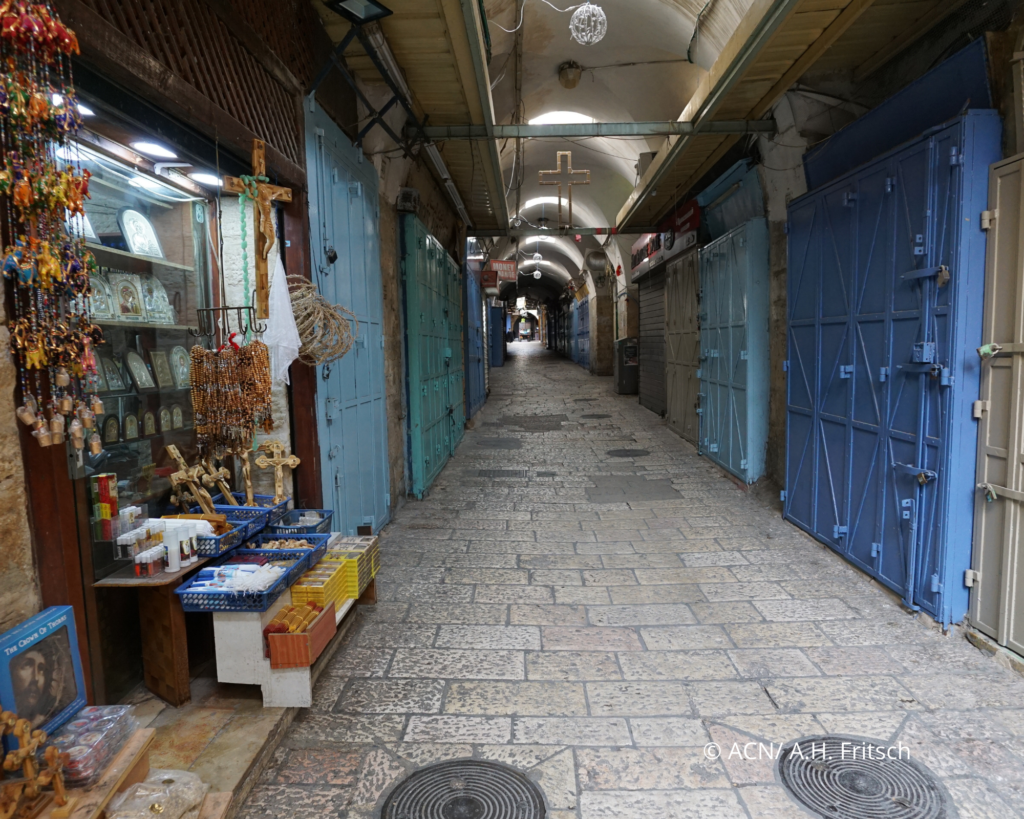
“These families had to leave their homes at the last moment, fleeing from the merciless terrorists. Israelis from all over the country have opened their homes to these families, and I immediately volunteered to help,” Holly tells ACN.
“I had to stay. I want to help in any way I can. Telling my parents was very difficult. We were all holding back tears as I shared the news. They have been very understanding, and that means a lot to me. At the same time, I know that it is very difficult for them.”
“I lived in Poland for three years and I visited many of the horrible places where the Holocaust took place. As a believer and a Christian, I have asked myself many times why did all this evil occur? Today I have the opportunity to help, so I must do so.”
From all over Gaza, Jerusalem, the West Bank, and Israel, ACN is receiving stories of pain and fear but also faith, sacrifice, and generosity. This is the Christian way of saying that evil should not have the last word.
When Pierbattista Pizzaballa was named patriarch of Jerusalem, he wrote a message to the Christians of his diocese: “The pallium reminds us that through our baptism, we chose to take on the yoke of Christ, the weight and the glory of the cross, which is love given unto death, and beyond.”
Lebanon: “We are not ready to go through it all again.”
Another great fear is that a mass offensive would entail a huge escalation of violence and death, potentially dragging Lebanon into the war and spreading through Syria. Both countries have had their share of suffering from war.
In Lebanon, already crushed by a terrible economic and political crisis, there is anxiety, fear, and dread. Some faithful of Tyre, in the south of the country, have already sought refuge in Beirut. The current situation reminds them of the difficult and painful period suffered during previous wars in their land.
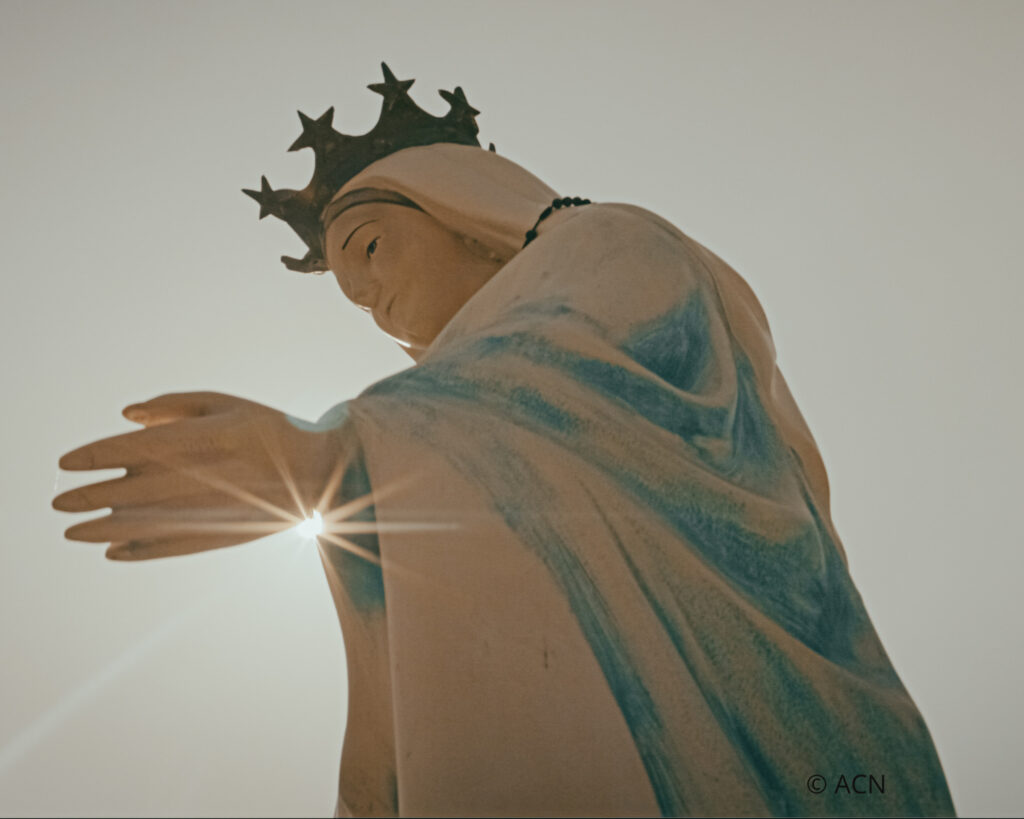
Marielle Boutros, a young Lebanese who works with ACN projects in Lebanon, says that “what we are witnessing now in Gaza and in the south of Lebanon is bringing back old fears. We feel haunted by the shadows of the war of 2006. As Christians living in Lebanon, we pray for the victims and their families, but we are also worried for our own nation: we don’t want to see Lebanon dragged into another war. My generation has already lived through two wars. We are not ready to go through it all again.”
A war that could spread to the whole of the Middle East
It isn’t only in Lebanon. Christians in Syria, Iraq, Jordan, Egypt, and other countries in the region look on this conflict with trepidation. During a visit to Aid to the Church in Need’s head office last month, the patriarch of the Melkite Catholic Church, His Beatitude Youssef Absi, highlighted the importance for the whole of the Middle East to find a solution to the Israeli-Palestinian conflict. “The Palestinian issue is the main issue. This is very clear to all of us here. Without a solution for the Palestinian issue, there is no solution for the Middle East,” he said.
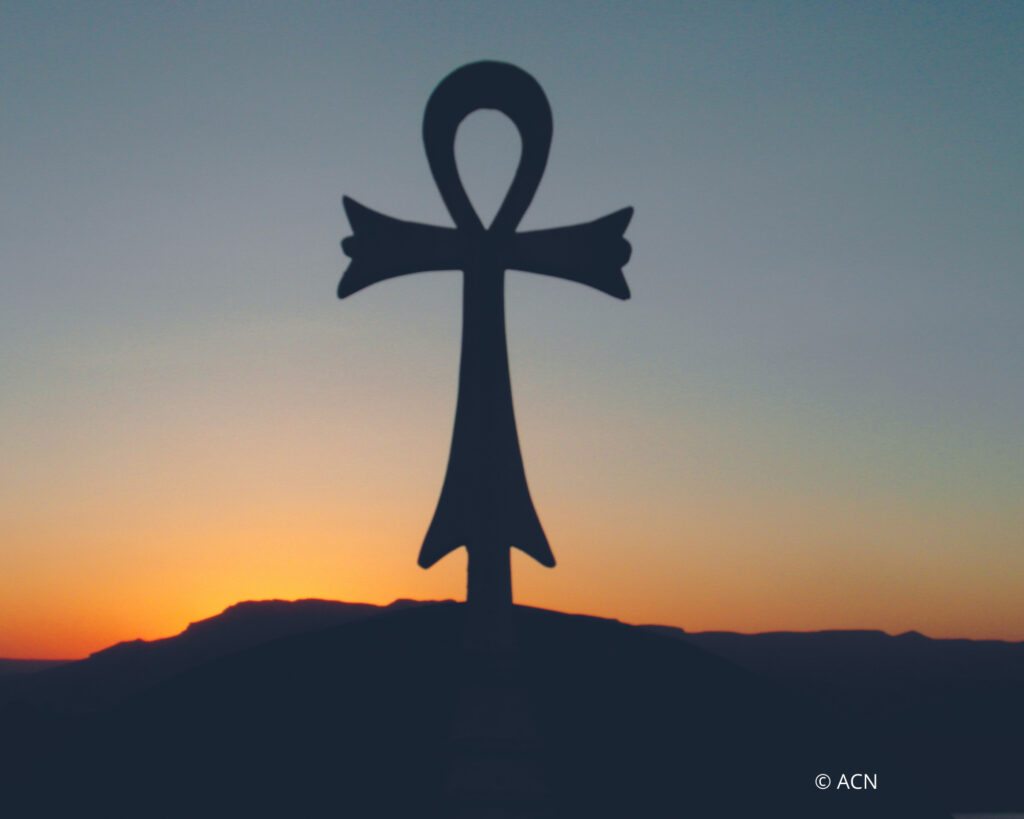
Chronic political turbulences, Islamic extremism, persecution, wars, socioeconomic injustices, and the discrimination Christians face has led to a terrible wave of emigration in all these countries. “The second intifada led to the emigration of 500 families from Palestine. I am very sorry to say that if this war doesn’t end soon, we will see another strong wave of emigration from the Holy Land. Therefore, we should do all we possibly can to save what can be saved in this critical time,” concludes George Akroush.

